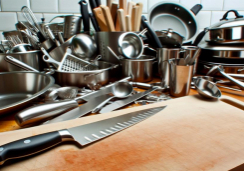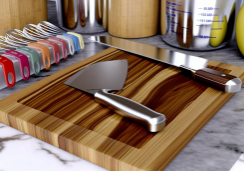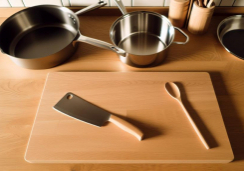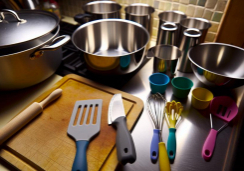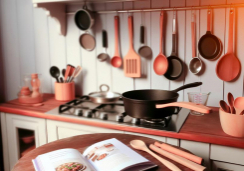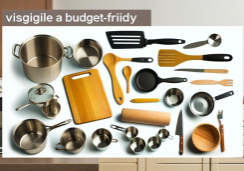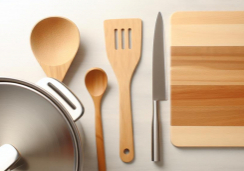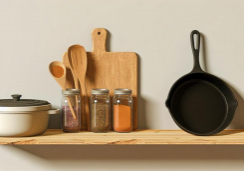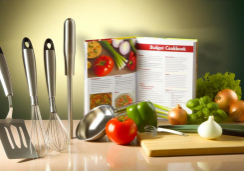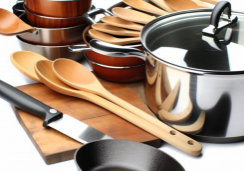Avoid Kitchen Downtime: Essential Heavy-Duty Equipment Choices
In the hustle and bustle of your modern-day culinary coliseum, you can't afford to let a broken chariot wheel halt the day's races. Your kitchen's resilience hinges on the heavy-duty equipment you choose, the trusty steeds that must endure the heat of battle meal after meal.
As you armor up for the inevitable skirmish against downtime, you need to weigh the merits of durability, energy efficiency, and ease of cleaning against the investment they require. But where do you start, and how do you ensure you're making choices that won't lead to your downfall?
Let's embark on a journey to fortify your kitchen's arsenal with the right tools, leaving no stone unturned in the quest for equipment that won't let you down when the orders pile up and the tickets keep coming.
Assessing Equipment Durability
When choosing heavy-duty kitchen equipment, it's crucial to assess its durability by examining the manufacturer's reputation and the quality of materials used. You're investing in the backbone of your commercial kitchen, so prioritize heavy-duty options that promise long-term reliability and minimal downtime. Look for robust construction and sturdy components that can withstand the daily grind of a busy kitchen.
Ensure that the essential kitchen equipment you select comes with a strong service and warranty package. This will safeguard your investment and provide peace of mind that support is available when you need it. Proper maintenance is key to keeping your equipment in working order, so opt for brands that offer clear guidelines on preventive maintenance and proper cleaning practices.
Investigate the equipment's track record through user reviews to gauge its longevity. Best practices in equipment durability don't stop at the purchase; they extend to daily use. Implementing a schedule for regular maintenance checks and proper cleaning will greatly extend the life of your heavy-duty equipment and help prevent any unexpected breakdowns.
Prioritizing Energy Efficiency
As you equip your commercial kitchen, prioritizing energy-efficient appliances can lead to substantial long-term savings on utility bills. When it comes to buying restaurant kitchen equipment, considering energy efficiency isn't just about being eco-friendly; it's a smart financial strategy.
Here are key factors to keep in mind:
- ENERGY STAR Certification: Seek out ENERGY STAR certified equipment, ensuring you meet stringent efficiency standards.
- Energy-Saving Features: Look for high-efficiency burners, advanced insulation, and low-energy lighting.
- Long-Term Costs: Factor in the potential energy savings when evaluating the price of equipment.
- Proper Maintenance: Regularly servicing your cooking equipment can prevent energy wastage.
- Innovative Technologies: Stay updated with new technologies that can boost energy efficiency in commercial kitchens.
Investing in energy-efficient types of ovens, commercial dishwashers, and other cooking equipment can't only reduce your carbon footprint but also enhance Food Safety by maintaining consistent performance.
Are the Heavy-Duty Equipment Choices in the Gear Guide Essential for Avoiding Kitchen Downtime?
When it comes to avoiding kitchen downtime, having the right heavyduty kitchen gear is essential. The Gear Guide offers a range of heavy-duty equipment choices designed to withstand the daily demands of a busy kitchen. From durable mixers to sturdy commercial-grade ovens, investing in these essential tools can help keep your kitchen running smoothly.
Streamlining Cleaning Processes
Having discussed the importance of energy-efficient equipment for cost savings and environmental benefits, let's now focus on how investing in easy-to-clean kitchen appliances can further enhance your restaurant's operational efficiency.
Streamlining cleaning processes is crucial for keeping your kitchen in top shape and mitigating potential downtime.
Choose appliances with user-friendly features that allow for simple and quick cleaning. Equipment with removable parts and easily accessible components not only simplifies cleaning procedures but also ensures proper maintenance. This approach reduces the time your staff spends on these tasks, allowing them to focus on other duties.
Incorporate commercial dishwashing solutions that boast self-cleaning capabilities. Such technology automates part of the maintenance process, cutting down on labor costs and minimizing the need for constant supervision. When planning your kitchen layout, consider the types of sinks and placement of cleaning supplies to ensure they're handy and conducive to efficient cleaning workflows.
To ensure consistency, establish a regular cleaning schedule and train your staff thoroughly. Utilize checklists and guidelines to maintain a high standard of cleanliness. Remember, equipment maintenance isn't just about the day-to-day; it's also about service and warranty. Always choose equipment from manufacturers that provide reliable service and warranty options, guaranteeing that any issues are promptly addressed without disrupting your operations.
Scheduling Regular Maintenance
To safeguard your kitchen's efficiency and prevent costly breakdowns, it's crucial to establish a schedule for regular maintenance of all heavy-duty equipment. Proper upkeep is the backbone of a reliable kitchen operation, and every restaurant should have a clear process in place.
Here are some sophisticated steps to ensure your equipment receives the care it needs:
- Implement a Maintenance Calendar: Create a detailed schedule for each piece of equipment, factoring in manufacturer recommendations and business needs.
- Train Your Team: Ensure staff know how to properly use and clean equipment, as well as recognize early signs of wear and tear.
- Choose the Right Service Provider: Partner with a reputable service professional who offers warranty and service plans.
- Opt for Maintenance-Inclusive Rentals: Consider renting equipment that includes a maintenance package to help extend its lifespan.
- Stay Proactive, Not Reactive: Make sure to preemptively address potential issues before they escalate.
Choosing the right service plan can be as important as the equipment itself. By scheduling regular maintenance, you not only keep your kitchen running smoothly but also potentially save on costs associated with emergency repairs.
Investing in Quality Brands
Why should you invest in reputable kitchen equipment brands?
When you're creating your restaurant kitchen equipment list, choosing the right brands is crucial. High-quality, reliable products from trusted manufacturers are essential for reducing downtime and ensuring smooth operations. You need to invest in equipment known for its durability and performance. This not only minimizes operational disruptions but also provides you with better customer support, easy access to replacement parts, and efficient maintenance services.
Before finalizing any purchase, consider the pros and cons of buying used restaurant equipment versus brand new. Used equipment might offer upfront savings, but it often lacks the warranty and service solutions that come with new, quality brands. This can lead to higher long-term costs due to more frequent repairs or replacements.
Investing in established and reputable manufacturers might cost more initially, but it's a decision that pays off. You'll have the peace of mind that comes with dependable essential restaurant equipment, and you'll avoid the potential pitfalls associated with lesser-known or lower-quality brands. Remember, cutting corners now can lead to costly issues later, so choose wisely when considering what to include on your restaurant kitchen equipment list.

